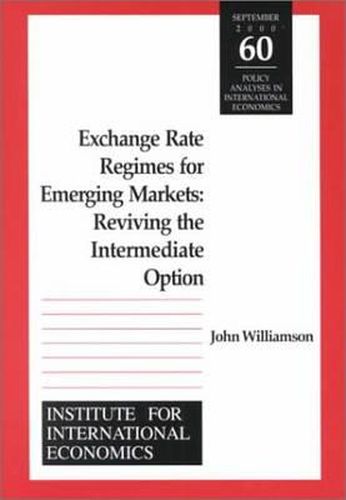Readings Newsletter
Become a Readings Member to make your shopping experience even easier.
Sign in or sign up for free!
You’re not far away from qualifying for FREE standard shipping within Australia
You’ve qualified for FREE standard shipping within Australia
The cart is loading…






In the aftermath of the Asian/global financial crises of 1997-98, how should emerging markets now structure their exchange rate systemsto prevent new crises from occurring? This study challengescurrent orthodoxy by advocating the revival of intermediate exchangerate regimes. In so doing, Williamson presents a reasoned challenge tothe new prevailing attitude that claims that all countries involved in the international capital markets need to polarize to one of the extreme regimes (to a fixed rate with either a currency board or dollarization, or to a lightly-managed float). He concludes that although there is some truth in the allegation that intermediate regimes are vulnerable to speculative crises, they still offer offsetting advantages. He also contends that it would be possible to redesign them to be more flexible so as to reduce their vulnerability to crises.
$9.00 standard shipping within Australia
FREE standard shipping within Australia for orders over $100.00
Express & International shipping calculated at checkout
In the aftermath of the Asian/global financial crises of 1997-98, how should emerging markets now structure their exchange rate systemsto prevent new crises from occurring? This study challengescurrent orthodoxy by advocating the revival of intermediate exchangerate regimes. In so doing, Williamson presents a reasoned challenge tothe new prevailing attitude that claims that all countries involved in the international capital markets need to polarize to one of the extreme regimes (to a fixed rate with either a currency board or dollarization, or to a lightly-managed float). He concludes that although there is some truth in the allegation that intermediate regimes are vulnerable to speculative crises, they still offer offsetting advantages. He also contends that it would be possible to redesign them to be more flexible so as to reduce their vulnerability to crises.